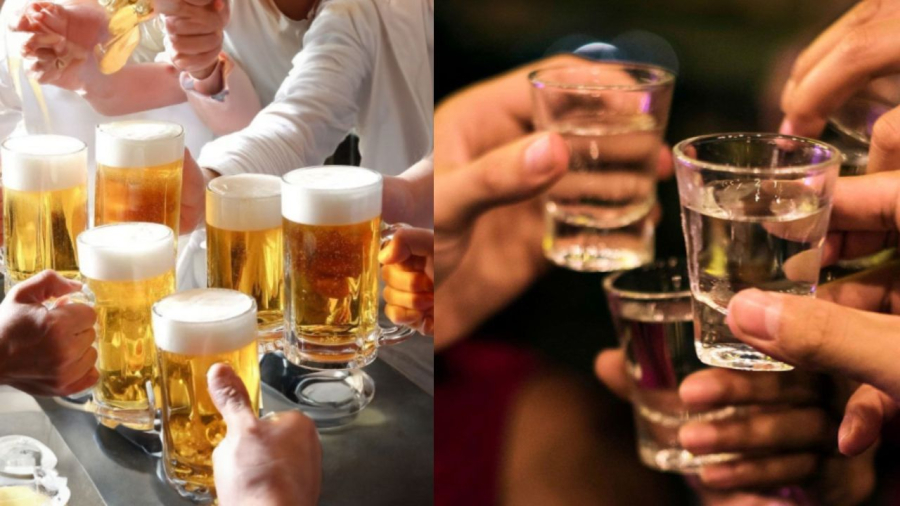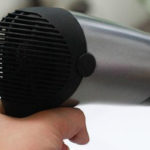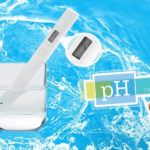In folklore, we often hear the phrase “Drink a cup of wine to warm the stomach.” The term “warm the stomach” here can be understood in two senses. Firstly, when drinking, it means adding some food into the body. Since drinking usually accompanies eating, warming the stomach means feeling full. Secondly, drinking alcohol makes the body feel warm, indicating that there is no longer a feeling of coldness.
The idea that eating gives a feeling of warmth and fullness is not wrong, but does drinking alcohol actually warm the body?
According to VTC News, Dr. Doan Du Manh, a member of the Vietnam Cardiovascular Association, believes that many people have the misconception that drinking alcohol warms the body. However, from a medical perspective, this is a mistake and can pose many risks to health.

Is it right or wrong to drink alcohol to warm the stomach?
When the body encounters a cold environment, it will increase metabolic heat production to maintain body temperature. In normal individuals, when exposed to cold weather, the blood vessels under the skin constrict, while the blood vessels that supply internal organs dilate to regulate excess blood flow (due to constriction of vessels under the skin).
When alcohol is consumed, the body feels warm because alcohol causes the body to release existing heat energy. This process of releasing heat causes the body to lose more heat. Therefore, in reality, people who drink alcohol are losing heat faster and not actually helping to keep warm. After a period of drinking, most of the heat is released, causing the whole body to feel cold and uncomfortable, leading to the consequence of feeling cold.
For individuals with high blood pressure or heart disease, drinking alcohol can lead to many dangerous complications, especially in cold weather. When drinking alcohol, blood vessels dilate, and if exposed to cold weather, they will constrict, causing increased blood pressure and increasing the risk of stroke. Therefore, patients with high blood pressure should avoid drinking alcohol.
Things to note when drinking alcohol
You should control the amount of alcohol consumed. Each person should only drink a maximum of two alcohol units per day, equivalent to 350ml of beer or 150ml of wine or 45ml of liquor.
When drinking alcohol, you can mix it with lemonade, fruit juice, or sugarcane juice to help reduce fatigue after drinking and boost immunity.
After drinking alcohol, you should avoid vigorous exercise and going out.

Alcoholic beverages are dangerous, so caution is needed
Exercising vigorously when there is alcohol in the body puts a lot of pressure on the heart and blood vessels. This can cause a burst blood vessel in the brain, leading to bleeding or stroke.
Going out after drinking alcohol is dangerous and can lead to accidents, especially in extremely hot or cold weather.
Therefore, after drinking alcohol, beer, it is absolutely necessary to refrain from intense physical exercise, including running. We need to rest and let the body naturally metabolize alcohol, which is the safest approach.
Do not drink too much water. Water helps excrete urine, which helps eliminate alcohol from the body. The idea of drinking a lot of water to quickly reduce alcohol concentration is more harmful than beneficial. Specifically, when ethanol (alcohol) is absorbed into the body, only about 5-10% is excreted through sweat, breath, and urine; 90-95% of the remaining ethanol is sent to the liver for processing.
Therefore, the amount of alcohol excreted in urine is negligible, while drinking excessive water leads to electrolyte imbalance. One of the common conditions when drinking alcohol is electrolyte loss. Drinking a lot of water dilutes the electrolyte concentration in the body, making this condition even worse.
You should drink rehydrating fluids such as fruit juice, salted lemonade, ORS solution, or mineral water with salt. One thing to note is to eat after drinking, especially starchy foods to avoid hypoglycemia, such as rice or porridge.
After consuming alcohol, do not take a bath or steam because it carries risks. Alcoholic beverages like beer and wine have a strong impact on the cardiovascular system, especially causing vasoconstriction and vasodilation. Alcohol also reduces blood clotting, creating conditions for conditions such as burst blood vessels in the brain. This can lead to stroke, intracranial hemorrhage, or cerebral compression, resulting in death.
Therefore, after using alcoholic beverages, you should avoid steam baths due to the negative reactions that this method brings. Instead, you should rest and avoid strenuous physical activity to ensure safety.
The phrase “drink a cup of wine to warm the stomach” originates from folklore. “Warming the stomach” can be interpreted as either consuming food along with alcohol, leading to a feeling of fullness, or the physical sensation of warmth caused by alcohol making the body lose heat energy.
Drinking alcohol and then being exposed to cold weather can be dangerous, especially for individuals with high blood pressure or heart disease. Alcohol causes blood vessels to dilate, but when exposed to cold temperatures, they constrict, leading to increased blood pressure and an elevated risk of stroke.
It is recommended that individuals consume no more than two alcohol units per day, equivalent to 350ml of beer, 150ml of wine, or 45ml of liquor.
It is important to avoid vigorous exercise and going out after drinking alcohol. Instead, rest and allow your body to naturally metabolize the alcohol. Drinking lemonade, fruit juice, or sugarcane juice can help reduce fatigue and boost immunity.
Yes, drinking excessive water after consuming alcohol can lead to electrolyte imbalance and worsen conditions like electrolyte loss. It is recommended to drink rehydrating fluids such as fruit juice, salted lemonade, ORS solution, or mineral water with salt instead.
No, it is not safe. Alcoholic beverages impact the cardiovascular system and can cause vasoconstriction and vasodilation. Taking a bath or steam can further stress the body and lead to serious health risks, including stroke and intracranial hemorrhage.
Unlock 8 Benefits with a Daily 5-Minute Jog
Living a hectic lifestyle can make fitting in time to exercise difficult. However, studies have revealed that even just 5 minutes of jogging a day can lead to positive outcomes for your health, including a decrease in the risk of developing cardiovascular disease, extending your life span by up to 3 years, or even reducing the susceptibility to heart disease.



































